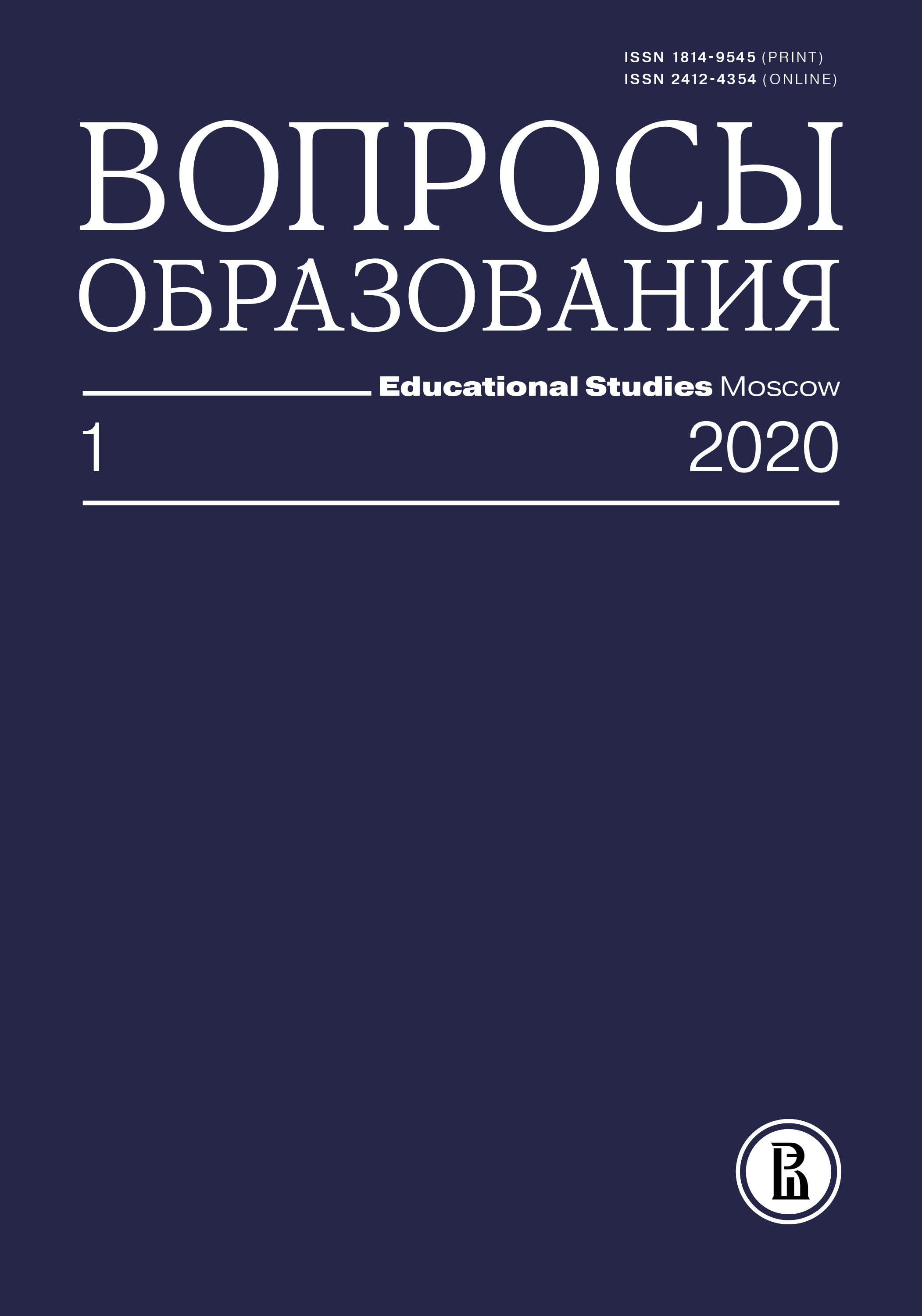Philosophy of Liberal Education: The Principles
Abstract
This article lays out systematically the principles of modern liberal philosophy of education by explicating the foundations of the Humboldtian (European) model of liberal education. Conceived over two centuries ago, those foundations have never been presented fully and coherently in Russian literature on pedagogy and philosophy of education. Ten principles of the model are identified in terms of modern liberal education theory: (1) lifelong learning, (2) academic freedom, (3) importance of practice and experience, (4) critical thinking and civil competency, (5) competency development instead of knowledge accumulation, (6) priority of general education over specialized education, (7) the concept of learning to learn, (8) self-directed learning effort, (9) political neutrality, and (10) interaction and Socratic dialogue. The second part of this article (release upcoming) sheds light on the key sources and socio-historical contexts that have shaped attitudes towards the liberal education theory since conception until the present day.









